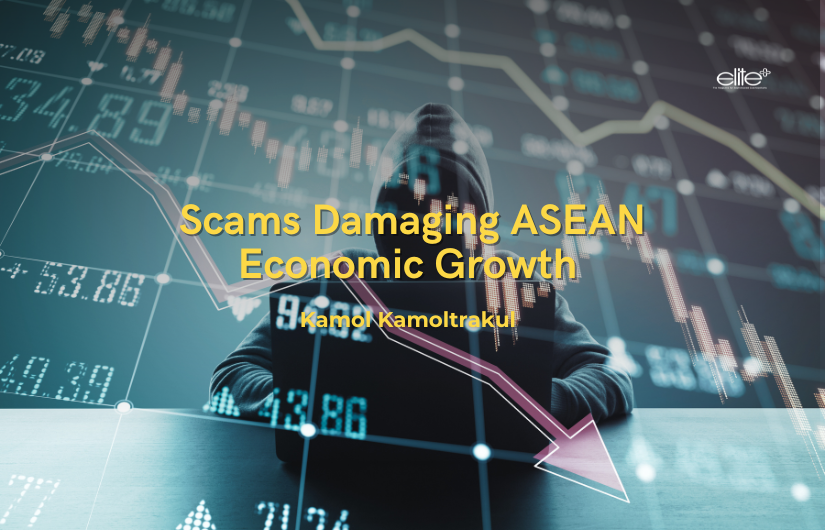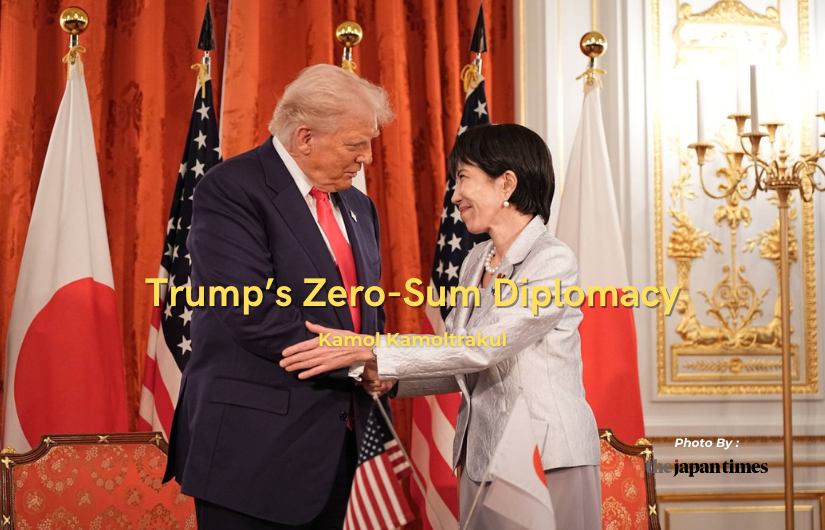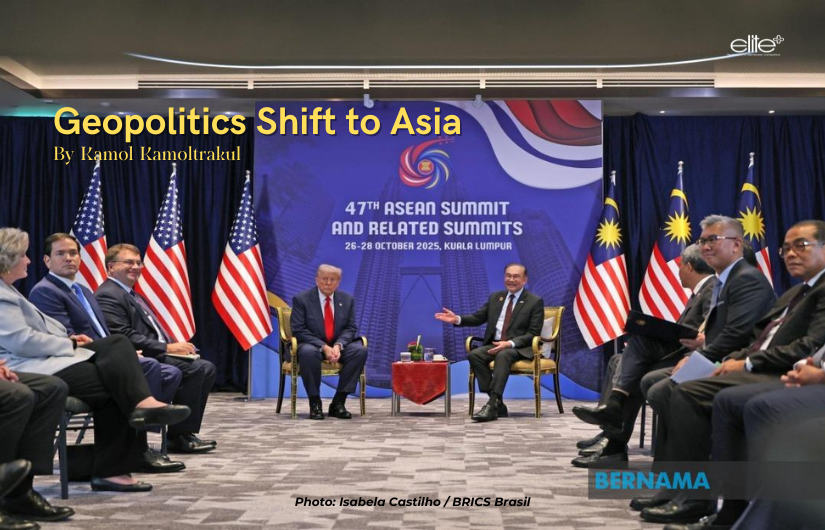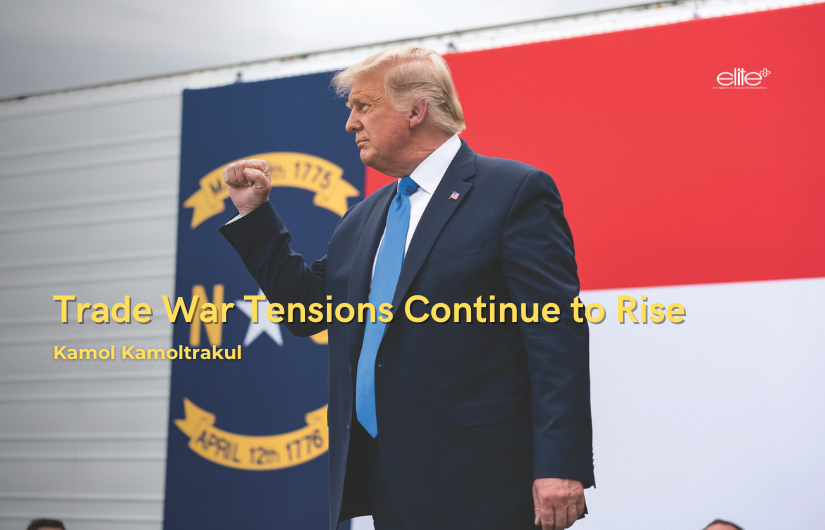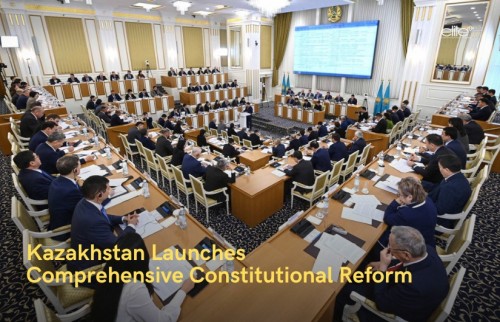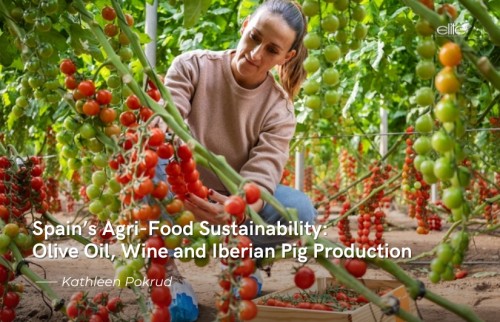Shanghai Cooperation Organisation Aims to Challenge Western Dominance
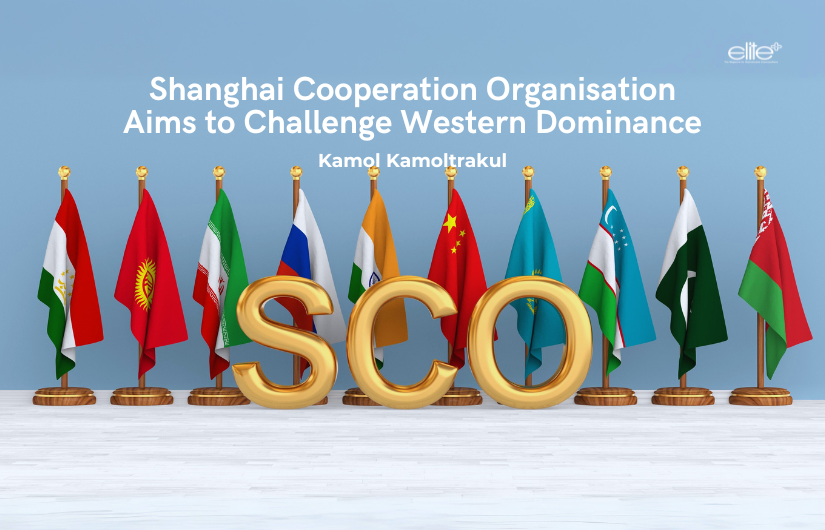
Even though the Thai media doesn’t seem to pay much attention to the Shanghai Cooperation Organisation (SCO), it is actually a huge entity created to adjust Western world-power dominance. While BRICS was established to focus on economic cooperation, trade and finance, SCO, the successor to the Shanghai Five formed in 1996 between China, Kazakhstan, Kyrgyzstan, Russia, and Tajikistan, goes beyond this, emphasising security, cross border issues and mutual defence.
On 24 April 1997, these countries signed the Treaty on Reduction of Military Forces in Border Regions in a meeting in Moscow, Russia. On 20 May 1997, Russian President Boris Yeltsin and Chinese President Jiang Zemin signed a declaration on a "multipolar world".
The annual summits of the Shanghai Five occurred in Almaty, Kazakhstan in 1998; Bishkek, Kyrgyzstan in 1999; and Dushanbe, Tajikistan in 2000. At the Dushanbe summit, members agreed to oppose intervention in other countries' internal affairs on the grounds of humanitarianism and protecting human rights. They also agreed to support the efforts of one another in safeguarding the five countries' national independence, sovereignty, territorial integrity and social stability.
In June 2001, the leaders of these nations and Uzbekistan met in Shanghai to announce the establishment of a new organisation with deeper political and economic cooperation. In June 2002, the heads of the SCO member states met in Saint Petersburg, Russia and signed the SCO Charter, which expounds the organisation's purposes, principles, structures and forms of operation. It entered into force on 19 September 2003.
At a meeting in July 2015 in Ufa, Russia, the SCO decided to admit India and Pakistan as full members, and a year later in Tashkent, both signed a memorandum of obligations, thereby starting the process of joining the SCO. In June 2017, at a summit in Kazakhstan, India and Pakistan officially joined SCO as full members. Iran and Belarus were next to join and now several countries are engaged as observers or dialogue partners.
Hence, SCO is the world's largest regional organisation in terms of geographic scope and population, covering approximately 24% of the world's total area (65% of Eurasia) and 42% of the world population. As of 2024, its combined nominal GDP accounts for around 23% while its GDP based on PPP stands at approximately 36% of the world's total. Thus, the SCO can certainly play an important role and create an impact on the international world order which has been dominated by the US and NATO.
The SCO is governed by the Heads of State Council (HSC), its supreme decision-making body, which meets once a year. The organisation also contains its Regional Anti-Terrorist Structure (RATS).
The Secretariat of the SCO, headquartered in Beijing, China, is the primary executive body of the organisation. It serves to implement organisational decisions and decrees, drafts proposed documents (such as declarations and agendas), functions as a document depository for the organisation, arranges specific activities within the SCO framework and promotes and disseminates information about the SCO. The SCO Secretary-General is elected to a three-year term. Zhang Ming of China became the current Secretary-General on 1 January 2022.
Moreover, the SCO has extended its engagement with many other regional and international organisations. In 2004, the SCO established relations with the United Nations where it is an observer in the General Assembly, the Commonwealth of Independent States in 2005, the Association of Southeast Asian Nations (ASEAN) in 2005, the Collective Security Treaty Organization in 2007, the Economic Cooperation Organization in 2007, the United Nations Office on Drugs and Crime in 2011, the Conference on Interaction and Confidence-Building Measures in Asia (CICA) in 2014, and the United Nations Economic and Social Commission for Asia and the Pacific (ESCAP) in 2015. In 2018, the SCO Regional Anti-Terrorist Structure (RATS) established relations with the African Union's African Centre for the Study and Research on Terrorism (ACSRT). Hence, SCO has a voice in many important regional and international organisations.
The SCO Tianjin Summit 2025, to be held from 31 August to 1 September 2025 in Tianjin, People's Republic of China, will be the 25th Heads of State Council meeting of the Shanghai Cooperation Organisation and fifth time China hosts the annual SCO summit.
For Russia, the SCO remains a cornerstone of its Eurasian strategy. Moscow serves as a balancing force – linking China with South and Central Asia, and now, with an assertive Iran, Russia’s approach is pragmatic, multi-vector and geared toward creating a new geopolitical equilibrium.
Ahead of this meeting, the SCO foreign ministers met Chinese President Xi Jinping, who called for improving mechanisms to address security threats and challenges. President Xi also said he hoped to meet the leaders of other member states at the summit to discuss the future development of the organisation, stressing that in the face of a turbulent and changing international landscape, the SCO must stay focused, remain confident, act efficiently and play a more proactive role in injecting greater stability and positive energy into the world.
He then called for joint efforts to firmly oppose hegemony, power politics and bullying to promote a more equal and balanced multipolar world.
In addition, speaking on behalf of the SCO ministers at their meeting with Xi, Sergey Lavrov, the Foreign Minister of Russia, said, “Through its steadfast commitment to the Shanghai Spirit, the SCO has achieved notable cooperation outcomes and gained increasing international appeal.
“The practice has proven that the Shanghai Spirit, which is characterised by mutual trust, mutual benefit, equality, consultation, respect for diversity of civilizations and pursuit of common development, aligns with member states' shared interests and demonstrates robust vitality. The SCO structure has helped speed up members' resolutions of border disputes, agreement on military deployments in border areas and addressing security threats.”
However, the heart of the summit in July 2024, was Iran Foreign Minister Abbas Araghchi’s speech that laid out a roadmap for SCO and included an assertive and legally grounded critique of Israeli and American actions. He cited Article 2, Section 4 of the UN Charter, denounced attacks on Iran’s IAEA-monitored nuclear facilities and invoked Resolution 487 of the UN Security Council. His message: Western aggression has no legal stance, and no amount of narrative control can change that.
But beyond condemnation, Araghchi delivered a concrete roadmap to strengthen the SCO as a vehicle for collective security and sovereignty, outlining it as a collective security body to respond to external aggression, sabotage, and terrorism; a permanent coordination mechanism for documenting and countering subversive acts; a centre for sanctions resistance to shield member economies from unilateral Western measures; a Shanghai Security Forum for defence and intelligence coordination and a centre to enhance cultural and media cooperation to counter cognitive and information warfare.
Analysts have since said that these are not rhetorical gestures, but rather blueprints for institutional transformation.
Meanwhile, Iran is inaugurating a new security doctrine built on multipolarity, mutual defence and resistance to hybrid threats. Tehran’s bet is clear: the SCO offers not just a geopolitical shelter, but a platform for advancing a new global logic – one rooted in strategic autonomy, not dependency.
The sophistication and clarity of Araghchi’s initiatives suggest that Tehran is preparing for the long game. Behind closed doors, the summit likely featured discussions – formal and informal – about deepening SCO institutionalism, perhaps even rethinking the organization’s mandate.
Araghchi made that vision explicit, saying, “The SCO is gradually strengthening its position on the world stage, and thus must adopt a more active, independent and structured role.”
The Western response was then immediate and predictable. Within days of Iran’s proposals, the EU imposed new sanctions on eight individuals and one Iranian organisation, citing vague claims of “serious human rights violations”. Israel, by contrast, faced no new penalties for genocide in Gaza.
This has been called geopolitical signalling with Tehran’s push to turn the SCO into an action-oriented bloc, which is seen in Brussels and Washington as a direct threat to the current order. The more coherent and proactive the SCO becomes, the harsher the pressure will grow. But that pressure proves Iran’s point. The rules-based order is no longer rules-based – it is power-based. For countries like Iran, the only path to sovereignty is through multilateral defiance and integration on their own terms.
In addition, Iran, as a member, is not improvising. It is positioning itself as a co-architect of a post-Western security order. Its vision for the SCO goes beyond survival. It is about shaping an international system where no single bloc can dominate through sanctions, information warfare or coercive diplomacy. This strategy has implications far beyond Tehran, which has suffered from sanctions and periodic attacks in the past twenty years, the latest on their nuclear facilities which they claim are for peaceful purposes.
If the SCO embraces Iran’s proposals and begins to institutionalise them, we could be witnessing the early formation of the 21st-century’s first true alternative to NATO. However, the West may dismiss this as fantasy. But in Eurasia, the future is already being drafted, without the West.

Kamol Kamoltrakul 48 Posts
Visiting lecturer: Navy Academy Institution, NIDA, School of Governor, Ministry of Interior, Chulalongkorn University, Former Lecturer, ABAC Honorary Advisor Trade and Industry Committee Senate. Senior advisor, Standing Committee on Finance and Banking, The House of Representative. Former Advisor to the Minister of Interior Board Member of ThaiPBS Board Member Of Thai Consumer Council Columnist : Prachachart Business Weekly, Matichon Weekly, Khom Chad Luke Daily Former Program Director Asian Forum for Human Rights and Development ( FORUM-ASIA).




